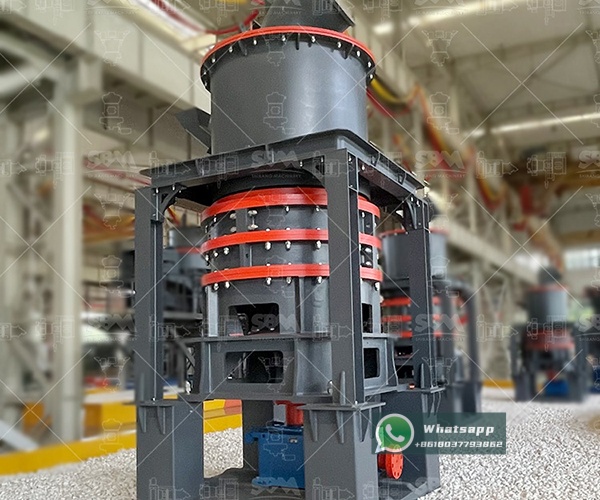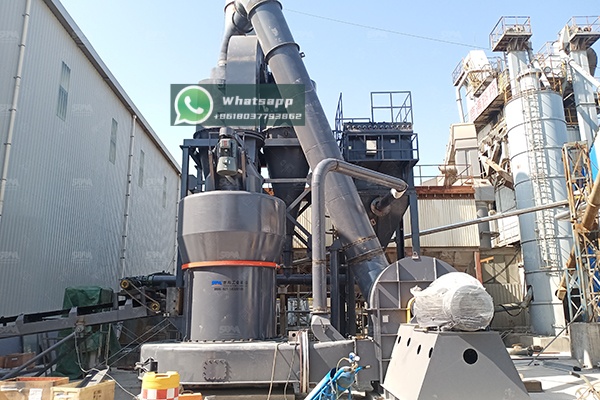The paint and coatings industry is perpetually evolving, driven by the demand for higher performance, improved aesthetics, and more sustainable products. A critical component in achieving the desired finish in many paints, especially industrial and architectural coatings, is the matting agent. Matting agents are additives that reduce the gloss of a coating by creating micro-roughness on the surface, scattering incident light. Among the various materials used as matting agents, ultrafine kaolin stands out for its effectiveness, cost-efficiency, and natural abundance. The production of this high-performance kaolin, however, is entirely dependent on advanced grinding technology capable of delivering powders with precise particle size distributions (PSD) and top-cut control.
Kaolin, a naturally occurring hydrated aluminum silicate, must be processed to a specific fineness to function optimally as a matting agent. The ideal product has a controlled PSD where the majority of particles are in the range of 2 to 10 micrometers. This size range is crucial: particles that are too fine may not provide sufficient matting effect, while particles that are too coarse can create a rough surface texture and negatively impact the coating’s durability and appearance. Therefore, the grinding mill used must offer not only ultra-fine grinding capabilities but also exceptional classification accuracy to ensure a narrow and consistent particle distribution.

Processing kaolin for matting agents presents several unique challenges that not all grinding equipment can meet. First and foremost is the requirement for ultra-fine grinding. The target fineness often falls within the 600 to 2500 mesh range (approximately 2-23 microns). Achieving this consistently requires mills with high grinding efficiency and intense mechanical force.
Secondly, classification is paramount. The grinding process must be paired with an integrated, high-precision classifier that can instantly separate particles that have reached the target size from those that require further grinding. This prevents over-grinding, which wastes energy and creates overly fine particles that diminish the matting effect, and ensures no coarse particles escape into the final product.
Thirdly, product purity is non-negotiable. The grinding process must not introduce any metallic contamination from wear parts. Furthermore, many modern paint formulations are sensitive to heat. Therefore, the mill must operate with effective cooling systems or low heat generation to prevent thermal degradation of the kaolin’s crystalline structure, which could alter its properties.
For producers seeking to enter or dominate the high-value paint matting agent market, selecting the right grinding technology is the most critical decision. Shanghai Zenith Machinery Co., Ltd., a renowned manufacturer of industrial grinding equipment, offers a perfect solution tailored for this exact application: the XZM Ultrafine Grinding Mill.
The Zenith XZM series is engineered specifically for producing superfine powders from soft to medium-hard minerals, making it exceptionally well-suited for kaolin. Its design philosophy centers on achieving maximum fineness with maximum efficiency and minimum contamination. The mill’s working principle involves a high-speed rotary shaft that drives multiple grinding rollers to press and rotate against a grinding ring. Material is fed into the center and is thrown outward by centrifugal force, being ground between the rollers and the ring.
A key feature of the XZM Mill is its integrated high-turbulence classifier. The fineness of the final product can be easily adjusted between 325 to 2500 mesh (5-45 microns) by changing the classifier’s speed. This allows operators to dial in the exact PSD required for different grades of paint matting agents, from standard to high-performance formulations. The mill’s innovative design ensures a high yield of end-fines and a sharp particle size cut, eliminating the need for external classification systems and simplifying the entire process flow.

To illustrate its capabilities, here are the technical parameters for two models in the XZM series, demonstrating their capacity and power across different production scales:
| Model | Working Diameter (mm) | Max Feed Size (mm) | Final Size (mesh) | Output (kg/h) | Main Motor Power (kW) |
|---|---|---|---|---|---|
| XZM221 | Φ800 | ≤20 | 325-2500 | 500-4500 | 75 |
| XZM268 | Φ1680 | ≤20 | 325-2500 | 5000-25000 | 315 |
For ultra-large-scale production lines or projects requiring even more advanced process control, Zenith’s LUM Ultrafine Vertical Mill presents an excellent alternative. This mill represents the pinnacle of Zenith’s grinding technology, integrating grinding, powder selection, drying, and conveying into a single, compact unit.
The LUM series is particularly adept at handling materials requiring simultaneous grinding and drying. If the feedstock kaolin has a higher moisture content, the LUM mill’s hot air source can efficiently dry it during the grinding process, eliminating the need for a separate dryer. Its advanced intelligent control system allows for remote monitoring and adjustment of operating parameters, ensuring optimal performance and ease of maintenance.

The LUM mill’s technical prowess is evident in its specifications, capable of achieving fineness levels between 5-30 microns (D97) with high throughput.
The shift towards high-quality, specialized paint matting agents creates a significant opportunity for kaolin processors. Capitalizing on this opportunity requires investing in the right technology—technology that can deliver precise ultrafine grinding with superior classification. Shanghai Zenith Machinery’s XZM Ultrafine Grinding Mill, and its advanced counterpart the LUM Vertical Mill, are engineered to meet these exacting demands. They offer a combination of efficiency, product quality, reliability, and environmental performance that is essential for success in this competitive and technically demanding sector. By partnering with an experienced manufacturer like Zenith, producers can ensure they have the technological edge to produce a premium kaolin matting agent that meets the future needs of the global paint industry.